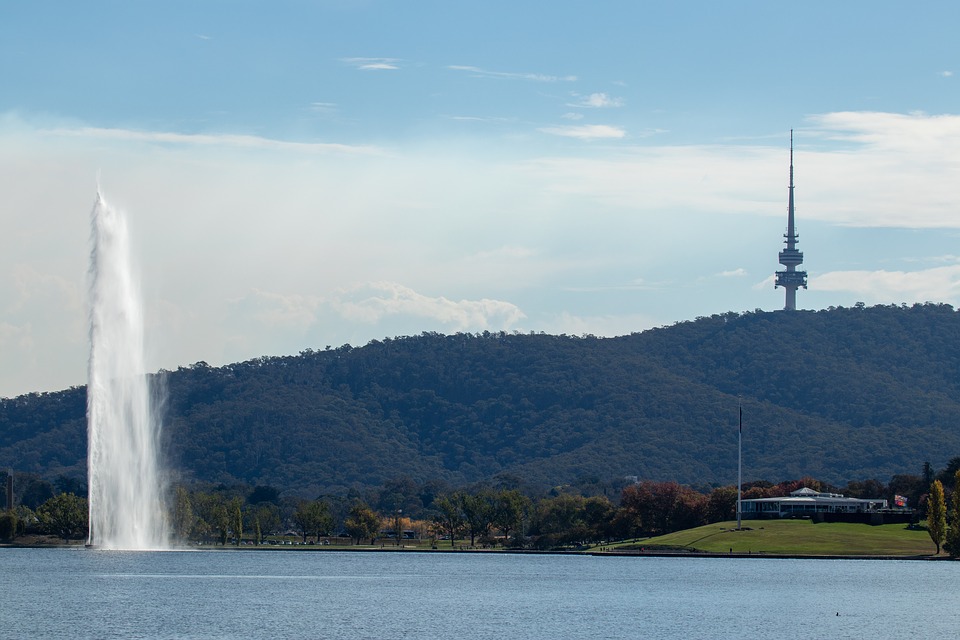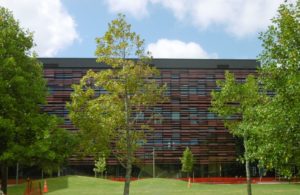Past CAPHIA Events
CAPHIA 2019 AGM and subsequent meeting
CAPHIA held its 2019 AGM at the Australian National University in Canberra on Thursday 7 November. Heads of School and academic representatives discussed a wide range of issues affecting public health teaching and research in Australia, New Zealand and the Pacific.

Summary of CAPHIA meeting held following the AGM on 7 November 2019
There were a number of presentations and discussions held at the meeting. This is a summary of the overall discussion held over the course of the day, as many topics were addressed in multiple presentations. Where available, presentation slides are included below.
CAPHIA has experienced substantial growth in its membership base and the scope of its activities since its inception. While growing to its current size was critical during this period, the organisation is transitioning to a different stage of its maturation. The emphasis is shifting from adding and expanding activities to optimising the mix of activities. Growth is still possible and desirable, but will need to occur by leveraging partnerships or finding other sources of income. CAPHIA should focus on activities which are best undertaken collectively.
Public health graduates occupy a surprisingly diverse set of roles. Preparing them for this diversity brings challenges. These include linking them, and linking CAPHIA’s members, with future employers. Work Integrated Learning can be useful, but is difficult to scale, particularly given the diversity of employers of public health graduates. Some public health graduates will create their own positions and their own institutions, so they should be equipped with entrepreneurial skills, in a process potentially similar to MBA graduates.
Public health in Australia is different than most health degrees in that it is not a clinical degree and its degree programs are not accredited by any Australian body. Accreditation has been a subject of increasing discussion within Australia, and CAPHIA could have a role in this. Advantages of accreditation include quality assurance and mechanisms for public health academics to advocate for their programs internally in a wider context of substantial pressures on the academic quality. Advantages could also include increased international mobility for graduates and an advantage for graduates in recruitment. Conversely, there are administrative and financial costs that come with the process of accreditation and CAPHIA might be perceived as being inappropriately placed to undertake accreditation of its members’ programs.
Noting that CAPHIA must focus on discerning the best activities within the constraints of its resources, potential actions for CAPHIA discussed at the meeting include:
Attracting and preparing international students CAPHIA could seek to enhance the reputation of Australasia as destination for prospective public health students. Helping ensure that Australasian public health educational experiences appropriately equip international students to work in their countries of origin.
Deciding collectively about accreditation CAPHIA could provide a platform for its member organisations to decide if accreditation is something they wish to pursue, and discern its role in any accreditation regimes.
Integrating values into pedagogy Members discussed the role of shared values in defining public health. CAPHIA could investigate integrating values into the next edition of the Foundation Competencies for Public Health Graduates, noting that values may be best learned through experiences
Sharing course content CAPHIA could explore options for facilitating its members sharing courses or content. Areas of cooperation could include for standard courses (e.g. introductory epidemiology), or for specialist topics unlikely to attract sufficient numbers at any one university (e.g. public health practice in specific overseas countries).
Gathering information about employers Given the diversity of employers of public health graduates, CAPHIA could seek to gain information about employers on behalf of its members in a limited way. Activities could include better understanding employer needs, and better understanding the job market.
Coordinating with universities in developing countries Noting that individual member institutions will individually pursue their own partnerships with universities in developing countries, CAPHIA could serving as a central platform on some issues of shared concern. At some level, this is a natural activity for CAPHIA as more institutions from developing countries join.
Supporting early career academics in public health CAPHIA could assist its members to better support early career academics, including through the Early Career Academic and Postgraduate Subcommittee (ECAPS).
Sessions and slides
A list of session speakers and slides (where available) is provided below.
Session 1: Curricula of the future
Prof Robyn Lucas: “How will global climate change alter public health pedagogy and curricula?”
Prof Colin MacDougall: Included reflections on the history of PHERP and CAPHIA
Prof Erica James: “Opportunities and challenges for public health education in Australia and New Zealand: is there a role for accreditation?”
Dr Evie Kendal: “Changes to PH curricula: ECR perspective”
Session 2: Graduating the public health workforce
Mr Rory Watts: Included reflections on the job market for public health graduates.
Dr Rachael McLean: “Graduating the public health workforce University of Otago”
Mr Gregor Mews: “The public health workforce – insights from Australia and an eye to the future”
Prof Colleen Fisher: “Working with Complex Issues. Are we graduating public health professionals with relevant skills & knowledge”
Session 3: CAPHIA improving public health education in our region, conversation informed by the Australian Department of Foreign Affairs and Trade
Heads of Schools met with a resentative of the Australian Department of Foreign Affairs and Trade
CAPHIA 2019 Teaching and Learning Forum in Canberra, Australia
CAPHIA held a very successful Teaching and Learning Forum at the Australian National University in Canberra on 15-17 July 2019. The theme of this Teaching and Learning Forum was ‘Merging the Global and the Local in Teaching and Learning: Opportunities and Risks in Educating a World-Ready Public Health Workforce’.
Resources from the CAPHIA Teaching and Learning Forum are available here.
CAPHIA AGM 2018
The CAPHIA AGM was held at Parliament House, Canberra on 23 October 2018.
CAPHIA members planned an ambitious work program for 2019 and met with a range of politicians and policy makers.
These included Hon. Dan Tehan MP, Minister for Education, Hon. Greg Hunt MP, Minister for Health, Hon. Catherine King MP, Shadow Minister for Health and Medicare, Senator Richard Di Natale, Leader of the Australian Greens, Professor Anne Kelso, CEO of NHMRC and Ms Erica Kneipp, First Assistant Secretary (A/g), Department of Health.
CAPHIA 2018 Public Health Teaching and Learning Forum in Cairns
CAPHIA’s Australia-based Teaching and Learning Forum was held at James Cook University in Cairns, Queensland on 24 and 25 September 2018. It was a valuable event in which attendees were able to share and discuss research to assist more effective public health teaching in Australia and New Zealand.
Resources from the conference are now available.
CAPHIA 2018 Public Health Teaching & Learning Forum in Auckland
CAPHIA held a very successful Teaching and Learning Forum in New Zealand, at the South Campus of the Auckland University of Technology (pictured below) on 17 April 2018. The conference theme was “Practicing what we preach: Connections and communication in public health teaching & learning”. Resources from the conference are now available.
CAPHIA 2017 Meetings at Parliament House
CAPHIA Heads of Schools and other institutional representatives met with a series of officials at Parliament House on 14 September 2017. Notes on these meetings are available here.
CAPHIA 2017 Public Health Teaching & Learning Forum
CAPHIA held a successful 2017 Public Health Teaching & Learning Forum at the University of Sydney on 20 and 21 July. The final CAPHIA Teaching and Learning Forum 2017 Program is available.
CAPHIA Sideline Session at the World Congress of Public Health – April 2017
The CAPHIA Sideline Session at the World Congress of Public Health brought together for the first time organisations representing universities and other institutions that teach and research public health from across the globe. A summary document highlights key messages from this meeting, which reinforced CAPHIA’s value using comparator organisations
CAPHIA 2016 Public Health Teaching & Learning Forum
The CAPHIA 2016 Public Health Teaching & Learning Forum was held at the Doubletree Hotel in Alice Springs on 21-23 September 2016 (#CAPHIAForum16)
The Forum program is available here.